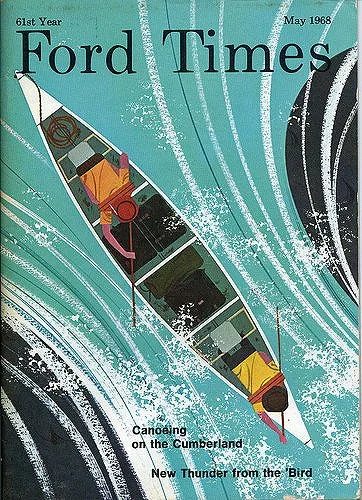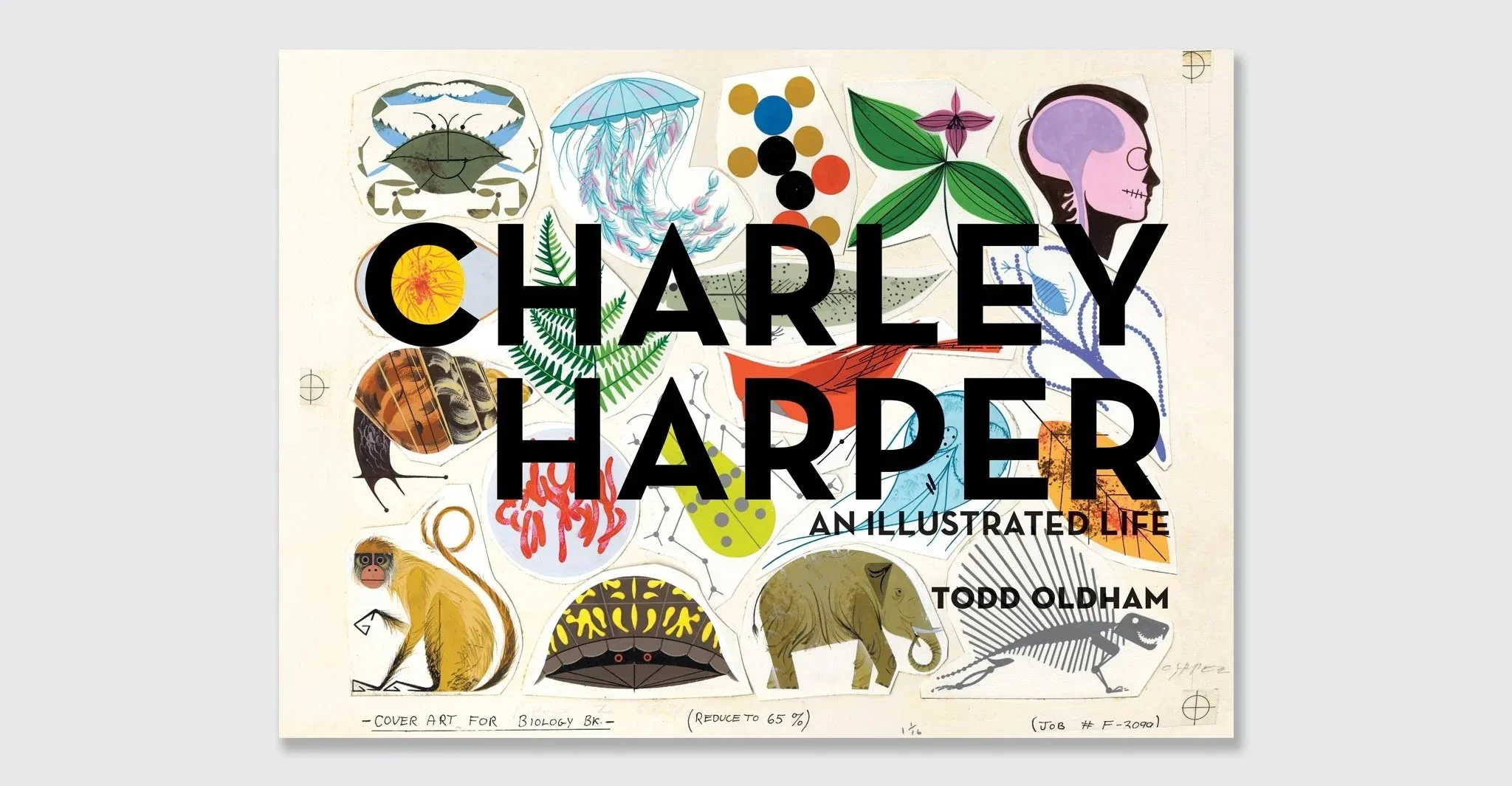I just count the wings
September 14, 2017—Charley Harper died in Dayton, Ohio, on a Sunday in June of 2007. He was just shy of his 85th birthday and had been battling complications stemming from pneumonia for months.
A prolific illustrator and painter, Harper created prints, textbook illustrations, landscapes, acrylic paintings, posters, and more. His output amounts to a treasury of once-widely overlooked modernist marvels that have only recently gotten some of the attention they deserve in the form of exhibitions and tireless advocacy on behalf of his son, Brett, and designer Todd Oldham. The West Virginia farm-born artist is celebrated for the revolutionary flair that he brought to commercial art in America's postwar years.
Charley Harper's playful and immediately striking editorial illustrations for Ford Times magazine, a lifestyle publication that Ford Motor Company produced for its customers, at first accompanied recipes but subsequently appeared throughout the monthly magazine's full-color pages and on its covers.
Harper initially got his foot in the door at the magazine by mailing the editors paintings he'd done during his six-month-long honeymoon trip (his wife, Edie, was also an artist). The relationship he forged with then-art director Arthur Lougee would yield freelance illustration assignments for all kinds of subjects that would see Harper's name appearing in the magazine for nearly 40 years.
In April of 1951, his first cover commission for Ford Times depicted a handful of fish navigating dangling fishing hooks.
In lieu of a prominent network of clearly defined scales or fins, Harper's textures materialize from his application of layers of color. He peppers the fish's undersides with incandescent flecks that suggest depth and roundness. Harper's illustrations of fish and birds for the magazine in the early 1950s, with their systems of clean curved spheres and hovering angular planes, seemed to draw on Wassily Kandinsky's paintings more often than they did the field guides that he said he referenced. Brett wrote about his father's fussy research for Discovery Channel magazine.
"Sometimes," Brett wrote, "he even borrowed the skins of birds from Cincinnati's Museum of Natural History and Science, or would pull photo files of actual incidents ... from the public library's reference collection."
Harper's art at Ford Times generated so much attention that the editors made prints of his work available by mail order. First, there was a series of fish prints, and then birds. Harper said later that he received one hundred percent of the profits from the prints.
In the years that followed, nature became a cornerstone of Harper's work. His clients included the U.S. National Parks Service, the Cincinnati Nature Center, the Audubon Society, and more.
A year before his death in 2007, Harper turned in his last commissioned project—a poster for the Cape May Bird Observatory in Cape May, New Jersey. The state is critically important to birds flying in and out of New England and Canada, and Cape May County, with its wealth of varied habitats, is of particular importance in the fall. In late October, Avalon Seawatch visitors have the chance to catch views of hundreds of thousands of birds in flight.
My partner brought Harper's work into my life. I’m grateful for all that she’s introduced me to, and this is something I’ve only just begun to get my arms around.
Shannon picked up the oversized landscape volume authored by Todd Oldham—Charley Harper: An Illustrated Life—some seven or eight years ago, and it has moved with us between a couple of our apartments in Brooklyn. It's everything—a completist’s monograph that surveys and celebrates Harper's broad-ranging works. Oldham discovered the artist when he was leafing through old magazines in a Pennsylvania thrift store back in 2001.
“Charley’s inspired, yet accurate, color sense is undeniable, and when combined with the precision he exacts on rendering only the most important details, one is always left with a sense of awe,” writes Oldham in the tome’s introduction.
An Illustrated Life has recently made its way from the bookcase in our bedroom out to our living room. There, Harper's curious and lively paintings are exposed and in the open, getting a bit of attention on our credenza instead of being tucked away. It’s a nice change.
All images by Charley Harper. Photograph of Todd Oldham's book © Ammo Books (mini edition is still available). There are extensive essays on the life of Charley and Edie Harper at Codex 99.




